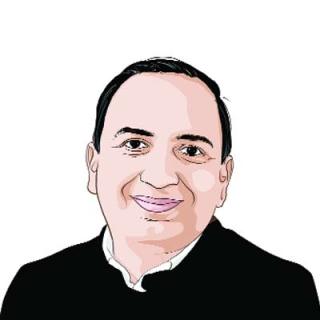Who’s winning/losing?
The anger in India after Pulwama is self-destructively turning inward. Pakistan has won because our public culture has become corrosive. The Pakistani state’s silence in the face of violent proxies is being mirrored in our state’s silence in the face of vigilantism.

After Pulwama, a suffocation has gripped India. Not to put too fine a point on this, political opinion now operates under the disconcerting thought that Pakistan is in some significant sense, winning. The anger against Pakistan is justified. But what we are witnessing in India is more a paroxysm of self-loathing rather than righteous anger; a self-loathing that is looking not for solutions, but for someone to blame. The tragedy of Pulwama is not just that soldiers died; it is the sense that we are acting as if Pakistan has won.
Pakistan has won because it can help carry out such acts of violence with impunity. No international pressure, no diplomatic response, no surgical strikes seem adequate to the task of deterring this behaviour. It is no small consolation to remember that even the mightiest of powers flounder on the desolate shoals of terrorism; just look at the Americans in Afghanistan. There is no quick fix to the problem.
Pakistan has won because while we have the right, and arguably the duty, to retaliate, we have not built the capabilities. We can carry out visible operations to satiate public will. But the blunt truth is we have not built the kind of intelligence, covert operations, and technological capabilities for a genuine response to sub-conventional warfare. These capabilities are not conjured up at will. They require years of patient state building. These don’t come easily to countries that cannot even get a basic defence contract right. It is nonsense to say that India or Indian liberals did not have a national security strategy. The thinking on this is quite sophisticated. It is truer to say that as always we did not put our money where our mouth is.
Pakistan has won because the radicalisation in Kashmir is real and the alienation pervasive. We can console ourselves with the fact that cowardly Pakistani generals who use proxies can never win an actual war. But it is also becoming clear that our chest thumping politicians can seldom win an actual peace. It is easy to vent out anger at Kashmiris; it is far more difficult to accept the truth that in the last five years we made the situation in Kashmir far worse. The fragile and uncertain gains in Kashmir of the Atal Bihari Vajpayee and
Manmohan Singh years have been squandered away in an illusory bravado. Pakistan has won because our responses make India look more like Pakistan. There is a long-standing strain in Indian politics that has gained more currency recently. Structuring citizenship or political standing around religious identity was Pakistan’s parlour game. But there are more politicians in India now who want to play the same game, who are besotted by the same vocabulary of blasphemy, religion-based identification, and parochialism. There are sections of the Indian Left, whose response to nationalism is to say that the poisons of smaller identities can be an antidote to the larger poison of vicious nationalism.
We are creating a culture where each life is reduced to, and completely foretold in, its identity. Now, apparently, even soldiers are reduced entirely to their caste. No wonder it is so easy to stereotype, attribute collective guilt and seek collective retribution and conjure up divisions. Pakistan was born in and is scarred by an identity fetish. Instead of embracing freedom, we also want to measure up to that fetish.










.png)




























No hay comentarios:
Publicar un comentario